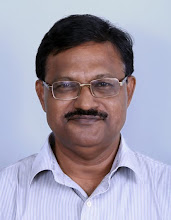He could donate money; but he chose to part with his kidney for the needy
Industrialist Kochouseph Chittilappally has shown the way forward in distributing the milk of human kindness by offering to donate one of his kidneys to a person whom he did not know earlier.
The is a sort of kidney exchange which offers to result in a kidney chain and it would not be a racket, if it becomes successful.
The recipient has to find a person within the family who will donate one kidney to another person and the link goes on like this.
The industrialist took inspiration from Fr Davis Chirammal of Thrissur who had donated a kidney to an outsider.
What our industrialists do by way of philanthropy could be nothing but donating some money to the needy. Our man’s deed is something akin to renunciation. His family members have concurred in with his intention, though reluctantly.
The industrialist also entertains some original thoughts regarding human conduct and life in this world. He had filed a petition before Kerala High Court seeking court’s sanction for individuals, on attaining certain age, to denounce medicines and surgery. The court has not given its opinion as yet.
There is a practice in the Jain community which is called Santhara or Sallenkhan, a procedure in which a Jain stops eating with the intention of preparing for death. This is different from suicide as it is not taken in passionate mood of anger, deceit or other emotions, but is undertaken only when the body is no longer capable of serving its owner as a instrument of spirituality and when inevitability of death is a matter of undisputed certainty.
The intention is to purify the body, and remove all thought of the physical things from the mind.
As well as giving up food and water, the ascetic abandons all desires and dislikes so that they can concentrate exclusively on the spiritual as they approach death.
Those who undergo Santhara are considered saints in the Jain community, although there is vehement criticism leveled against it by activists such as human rights protagonists. They say there is only right to life as enshrined in Article 21 of the Constitution and not right to death.
Remember Acharya Vinoba Bhave had died by fasting in 1982, not heeding to pleas by Indira Gandhi to change his decision.
Whatever the religious implications of higher order thinking, Kochouseph Chittilappally’s decision to donate the kidney and intention to join the kidney foundation activities is, indeed, laudable.
Tuesday, January 18, 2011
Subscribe to:
Post Comments (Atom)


.jpg)



1 comment:
his comment is herehop over to this site this contact formview publisher site imp sourcevisit here
Post a Comment